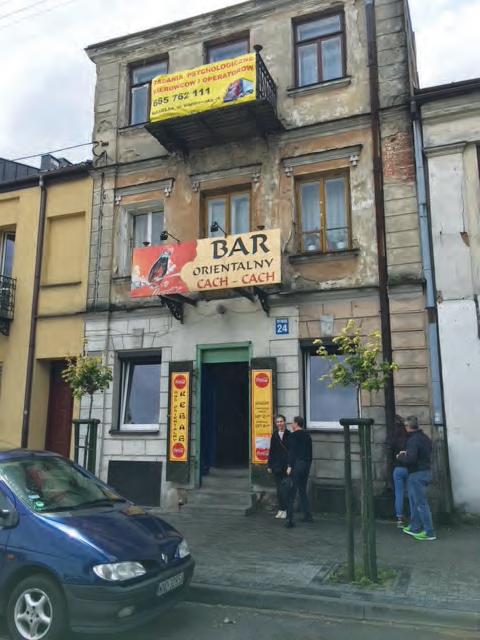3 minute read
Planning a Trip?
Next Article
OUR COMMUNITY
Planning a Trip?
Everything you need to know about traveling during Omicron.
ASHLEY ZLATOPOLSKY CONTRIBUTING WRITER
Flight cancellations, changing travel rules and getting stuck abroad: These are just a few of the many issues travelers are facing in recent weeks as the rapidly spreading Omicron variant of COVID-19 continues to impact the travel industry.
Having recently returned from a trip to Aruba, I faced all these issues and then some as Omicron quickly went from what felt like a small possibility in the background to the forefront of the news and, of course, our vacation.
Flying out to Aruba from Detroit in early December, the first officer on our flight didn’t show up. Luckily, another first officer was called in, who managed to drive to the airport in time for our flight to take off two hours late, but we still managed to make our connecting flight to Aruba.
Others, however, aren’t so lucky.
“People are calling in because they have Omicron and they’re getting sick, so [airlines] have staff shortages,” Jewish travel expert David Fishman of Metro Detroit-based Cadillac Travel Group explains. “But what also happens in these situations is a lot of times, people who are working will pick up more flights.”
Airline staff will max out how many hours they’re allowed to fly, Fishman continues, contributing to the cancellations.
“It’s a big problem,” he says.
David Fishman
FEAR OF GETTING STUCK ABROAD Coming home on Christmas Eve, my two flights took off as planned — but many people at my hotel were stuck, facing last-minute and unexpected holiday cancellations.
It’s another hurdle travelers must be ready to face if traveling in the coming weeks.
“That’s another part of the problem, a fear of getting stuck somewhere,” Fishman explains.
While my family managed to come home in a timely manner with negative COVID19 tests, we narrowly avoided an Omicron spread at our hotel. One week after we left, 33 rooms were on lockdown, and friends of ours faced 10 days of isolation in their rooms until they were able to present three negative COVID-19 tests in a row following the mandatory quarantine period.
This means people could miss work, getting home in time to take care of their kids or other crucial matters that often have to be weighed out as real possibilities prior to planning a trip.
Fishman says travelers often wonder what will happen in the event that they contract the virus and get stuck, especially abroad. The key, he explains, is to do as much homework as possible to stay up to date on government restrictions and guidelines — even up to a day before leaving — and to secure travel insurance, which he recommends as the smartest thing one can do.
“There are types of coverages that allow you to get home,” Fishman explains. “Most people don’t know about it.”
While these memberships can sometimes run on the more expensive side, Fishman says they offer peace of mind to travelers truly concerned about the possibility of getting stranded.
HOW TO TRAVEL SAFELY
That’s why Farmington Hills-based Jewish family practice physician Dr. Jeffrey Soffa says travelers should consider the pros and cons of every trip.
“You have to be aware that you’re going to be around a lot of different people, and you’re not going to know what their status is regarding immunizations or illness,” Soffa explains.
He recommends considering your own health, vaccination status, age and whether a trip falls into an essential category (such as taking care of a sick family member) or under the vacation umbrella, the latter of which could be postponed if needed. Dr. Jeffrey Either way, Soffa says “you Soffa want to make sure that you’re wearing a mask right, that your immunizations are up to date and that you stay as far away from other people as possible.”
Soffa suggests wearing an N95 or KN95 mask, which offer higher levels of protection against COVID-19. Cloth masks, he says, will help keep a sneeze or cough from traveling, but often won’t do much else in preventing virus spread.
Yet when it comes to push or pull, any mask is better than not wearing one at all, Soffa adds.
He also suggests avoiding highly crowded places while traveling, like theaters or other indoor spaces where people sit or stand closely to one another for extended periods of time.
And if you do happen to get sick, Soffa says you can treat your symptoms while self-isolating, but to always get prompt medical attention at an urgent care or hospital if you experience shortness of breath or other more severe symptoms.
“You don’t want to take a chance,” he says.











